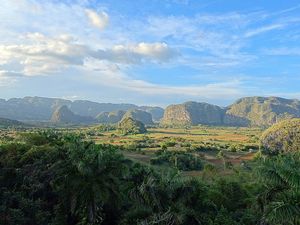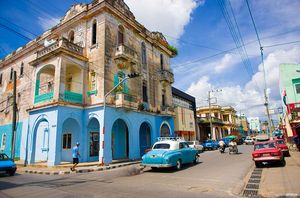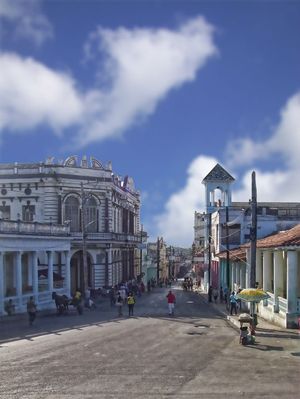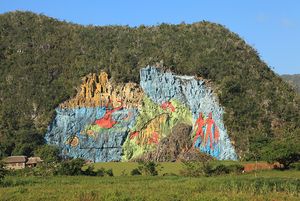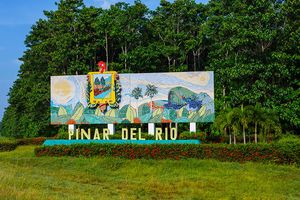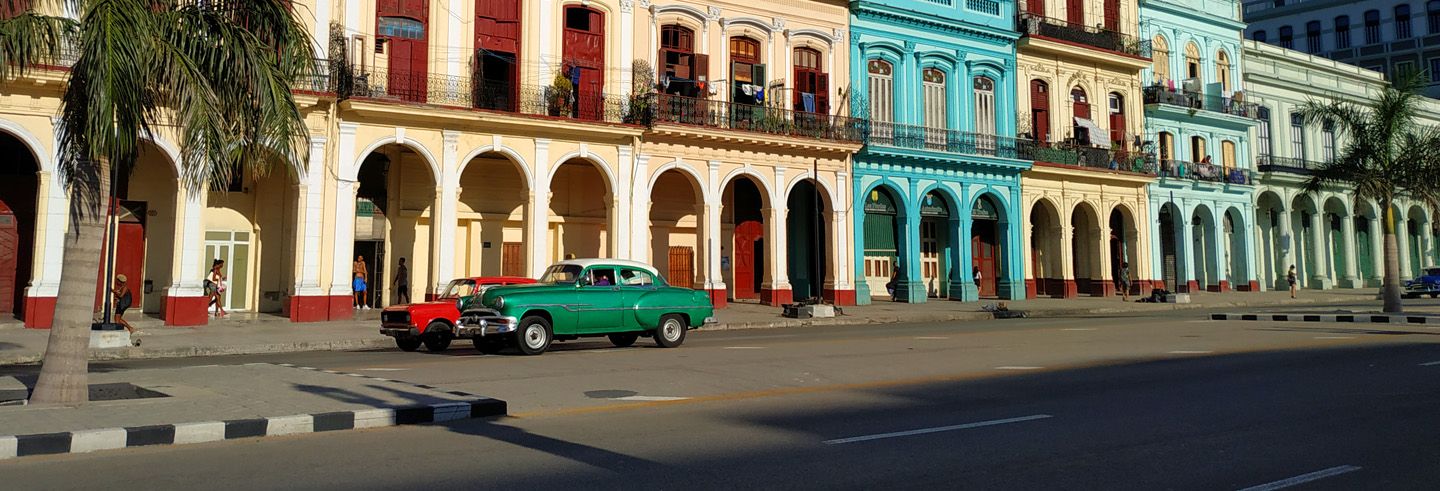

Pinar del Río, Cuba
Discover Pinar del Río, one of the most western cities in Cuba and the amazing nature that surrounds it
Pinar del Río is the capital of the province that bears the same name, the most western province in Cuba. It owes its name to the great amount of enormous pines that you will find as you enter the province. Its proximity to Havana makes it one of the best destinations to start discovering the Cuban archipelago. The province is the most protected zone in Cuba as the Parque Nacional de Viñales or the Peninsula de Guanahacabibes.
Page index:
- What are the best plans to make in Pinar del Río?
- What are the best excursions from Pinar del Río?
- How to get to Pinar del Río?
- Where to stay in Pinar del Río?
- When is the best time to visit Pinar del Río?
The Best Plans to Make in Pinar del Río
Pinar del Río may seem simple compared to other big cities in Cuba but that doesn't take away from its beauty. Its two most emblematic buildings are the Teatro José Jacinto Milanés (Milanese Theatre) and the Museo de Ciencias Naturales Sandalio de Noda (Sandalio de Noda Museum of Natural Sciences).
The first was constructed in neoclassic style at the beginning of the 19th century and is one of eight big theatres that were constructed in colonial Cuba. As for the Museum of Natural Sciences, placed in the Palacio de Guasch(Guasch Palace) of the beginning of the 20th century, it shelters one of the most impressive collections of the history of the fauna and flora of the island.
Another building not to be missed is the Palacio de los Matrimonios (Marriage Palace), an elegant early 20th-century palace where, if you are lucky, you will be able to see a typical Cuban wedding.
The Museo Provincial de Pinar del Río(Provincial Museum of Pinar del Río), a beautiful building of eclectic style from the end of the 19th century, will make you travel through the history of this province from the first moments.
Somewhat far from the city, you will be able to admire how traditional Havana cigars are produced. Pinar del Río is known as the capital of tobacco and it is not surprising as there are innumerable plantations, such as the Alejandro Robaina tobacco plantation. Not only will you be able to watch the manufacturing process and the traditional way of working of the “guajiros”, the Cuban farmers, but you will also be able to taste them.
If you are one who tries everything you will not be able to leave Pinar del Río without tasting the typical rum of the city La Guayabita del Pinar. It is a rum mixed with guava, so it is sweeter, so you better share the bottle with someone if you want to try it.
The Best Excursions from Pinar del Río
Because of the magnificent position that Pinar del Río occupies, it is perfect to discover a significant part of Cuba's nature.
If you want to explore the mountain flora and fauna, we recommend that you visit the Parque Natural de Viñales (Viñales Natural Park) and let yourself be seduced by the mogotes that populate the landscape. In addition you will be able to discover wonders of nature, like the Cueva del Indio (Indio Cave) or the magnificent Mural de la Prehistoria (Mural of the Prehistory).
Near Viñales you can visit the Casa del Veguero, a tobacco plantation where you can admire the traditional way of growing this precious Cuban product. In addition, to complete the visit, you can continue along the same road for about 2 kilometers until you reach the Mirador los Jazmines (Jazmines Viewpoint), one of the best places to see the mogotes in their full glory.
One of the most interesting places to see is the Palenque de los Cimarrones (Runaway slave Stockade) in Cueva de San Miguel, where you can learn more about the terrible conditions that the runaway slaves suffered.
If you are looking to spend a few days relaxing on the beach you have several options. You can go to Cayo Levisa or Cayo Jutias. Another option, a little further away, is to enjoy Maria la Gorda, one of the best diving spots in Cuba. The coral barrier offers you the chance to admire the black coral, a species that is very difficult to see in other areas.
How to Get to Pinar del Río?
To get to Pinar del Río the best option is to travel from Havana, through the East-West Highway. You can go by private or shared taxi or by collective transport.
Normally, this trip is done with an excursion from the Cuban capital. However, if you want to know the area more thoroughly and relax on the magnificent beaches of Cayo Jutias or Cayo Levisa, the best option is to spend one or two nights in the province.
Where to stay in Pinar del Río?
The best option for accommodation in Pinar del Río are the casas particulares (private houses or accommodations), where you can discover the authentic Cuban spirit and the most traditional way of life.
Of course, the city also has some hotels where you can stay, like the Vueltabajo Hotel or the Pinar del Río Hotel.
The Best Time to Visit Pinar del Río
An excellent time to visit Pinar del Río is between May and August, when it is possible to see animals like the unique Guanahacabibes turtles; while the months from October to March are the best for ornithology. Although if you want to enjoy a few days on the beach, the best time is between December and March. If possible, it is advisable to avoid the months between August and early October, as this region is famous for receiving strong hurricanes during this time.
Although if you want to know a unique party in Pinar del Río, the best thing to do is to come at the beginning of July, since that's when the carnival is celebrated with colorful floats.
Interactive map:
Pinar del Río
What to see:
- José Jacinto Milanés Theater
- Matrimonios Palace
- San Rosendo Cathedral
- Fábrica de Bebidas Casa Garay Drinks Factory
- Capitán San Luis Sports Stadium
- Alejandro Robaina Tobacco Plantation
- Guanahacabibes Peninsula National Park
- Viñales National Park
- Viñales
- Prehistory Mural
- Casa del Veguero
- Jardín de la Caridad
- Los Acuáticos
- Indio Cave
- San Miguel Cave
- Santo Tomás Great Cave
- San Diego de los Baños
- La Güíra Park
- Cueva de los Portales Cave
- Puerto Esperanza
Beaches:
Museums:
Why "Trip Cuba"?
Trip Cuba is an organization of Cuban agencies whose objectives are:
- ✓ To make Cuba, its culture and its heritage known.
- ✓ To promote sustainable tourism.
- ✓ To support the local economy, prioritizing direct contact with Cuban agencies.
Travel Agencies
If you are a travel agency or tour operator and you are looking forward to any assistance or collaboration to plan trips to Cuba, rely on our extensive experience
Copyright www.TripCuba.Org © - All rights reserved
All our agencies are duly registered in the National Registry of Travel Agencies of the Chamber of Commerce of the Republic of Cuba.







